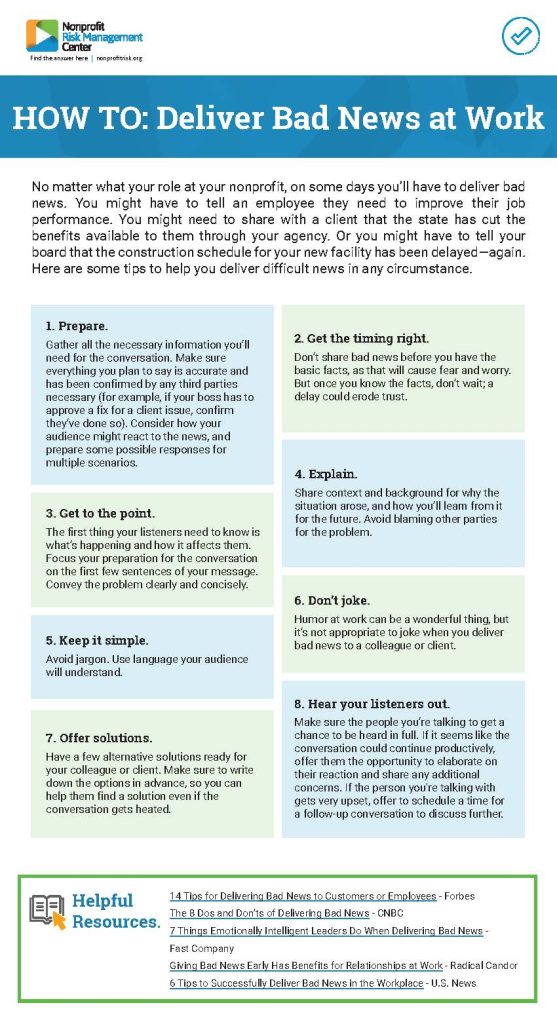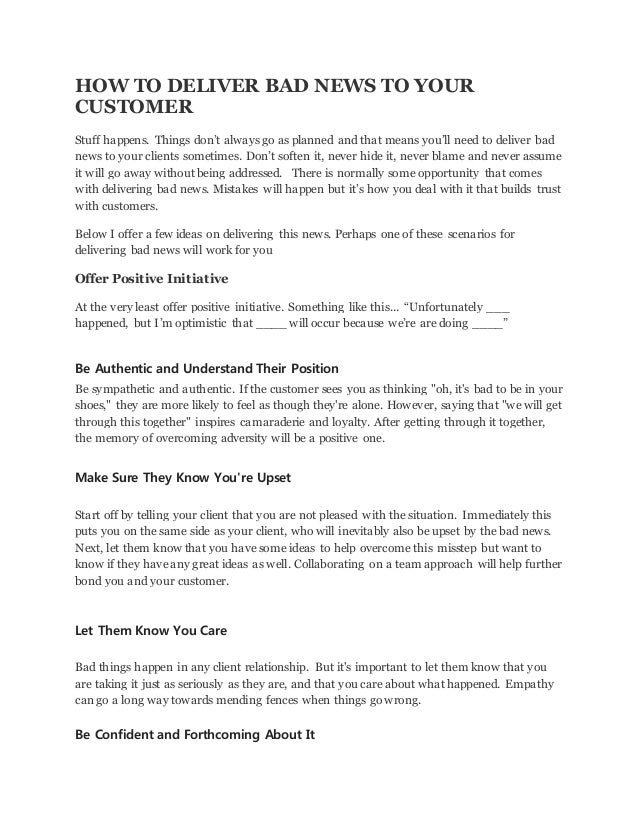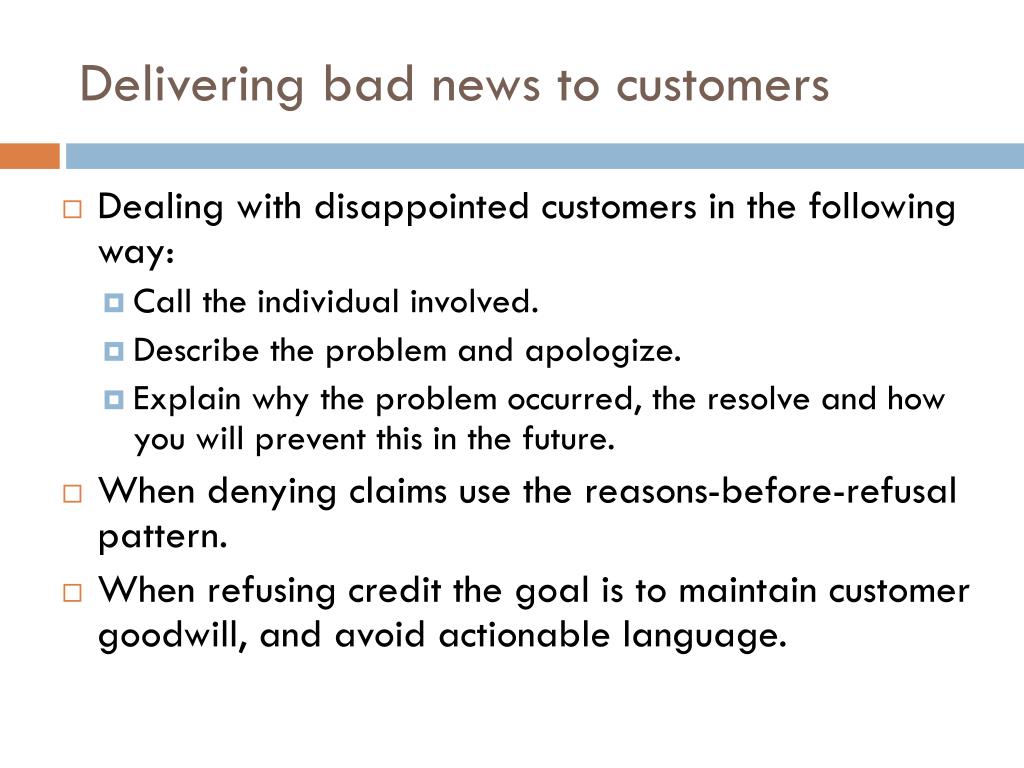How To Deliver Bad News To A Client

Delivering bad news to a client is an inevitable, yet delicate, aspect of business. Whether it's a project delay, budget overrun, or unfavorable outcome, how you communicate this information can significantly impact the client relationship.
Effective communication requires careful planning and execution. Transparency, empathy, and a solution-oriented approach are crucial to maintaining trust and minimizing damage to the client relationship.
Preparation is Key
Before delivering any bad news, thoroughly understand the situation. Gather all relevant facts, figures, and documentation to support your explanation.
Anticipate the client's potential reactions and prepare responses to their questions and concerns. This proactive approach demonstrates preparedness and fosters confidence.
Choose the Right Medium
The medium of delivery is as important as the message itself. For significant or sensitive news, a face-to-face meeting or a phone call is generally preferred over email.
These methods allow for immediate feedback and a more personal connection. Face-to-face communication allows you to gauge the client's reaction and adjust your approach accordingly.
Delivering the News
Start by setting the stage and expressing empathy for the situation. Avoid beating around the bush; be direct and clear about the bad news.
Use simple, jargon-free language to ensure the client fully understands the message. Frame the news in a way that acknowledges the client's perspective and avoids blaming.
Example of Effective Delivery
"Mr. Johnson, thank you for meeting with me today. I want to be upfront about a challenge we've encountered on the project. We've experienced an unexpected delay in securing the necessary permits, which will unfortunately push back the completion date by two weeks."
Then follow up with, "I understand this is disappointing, and I want to assure you that we're doing everything we can to minimize the impact."
Provide Context and Explanation
After delivering the bad news, explain the reasons behind the situation in detail. Provide a clear and concise explanation of the factors that contributed to the unfavorable outcome.
Transparency is key to maintaining trust. Be honest and forthcoming about any mistakes that were made, and take ownership of the situation.
Offer Solutions and Next Steps
Focus on what you are doing to mitigate the impact of the bad news. Present a clear plan of action to address the problem and prevent it from happening again.
Offer concrete solutions and be prepared to discuss alternative options with the client. This demonstrates a commitment to resolving the issue and finding a mutually agreeable solution.
"Clients are more likely to accept bad news if they feel heard and understood. Listen attentively to their concerns and address them with empathy and respect." - Business Communication Quarterly
Follow Up and Rebuild Trust
After delivering the bad news, follow up with the client to ensure they understand the situation and the proposed solutions. Maintain open communication and provide regular updates on the progress.
This demonstrates your commitment to resolving the issue and rebuilding trust. Be patient and understanding, as it may take time for the client to fully recover from the disappointment.
Conclusion
Delivering bad news is never easy, but by following these guidelines, you can minimize the negative impact on the client relationship. Honesty, transparency, and a solution-oriented approach are essential for navigating these difficult situations and maintaining long-term client relationships.
Ultimately, how you handle bad news can define your reputation and strengthen client loyalty. This is according to a study by the Harvard Business Review, which shows that companies which practice honest and forthcoming communication are 70% more likely to retain clients after negative outcomes.


















